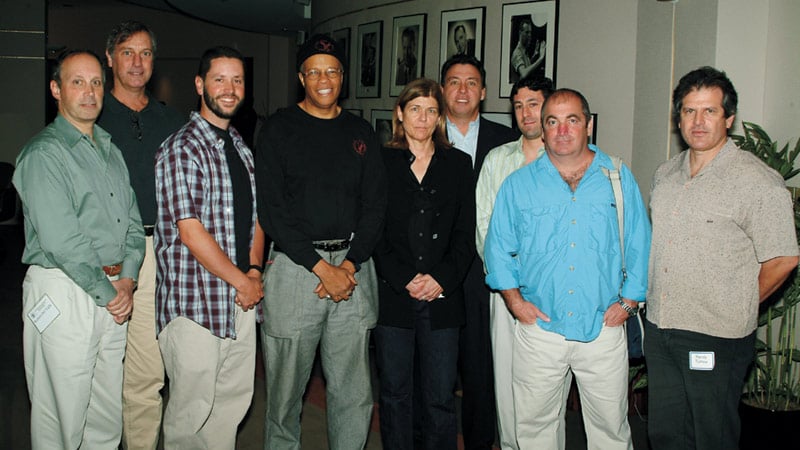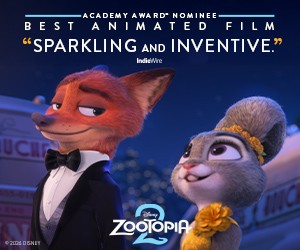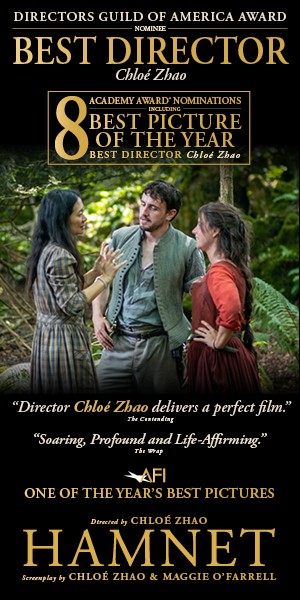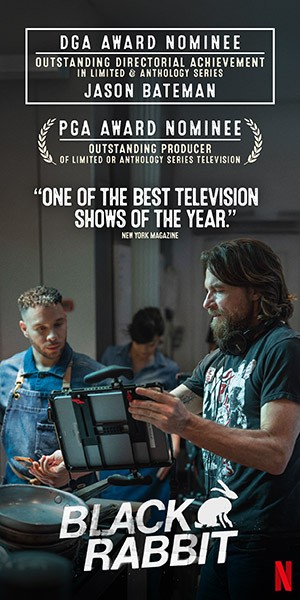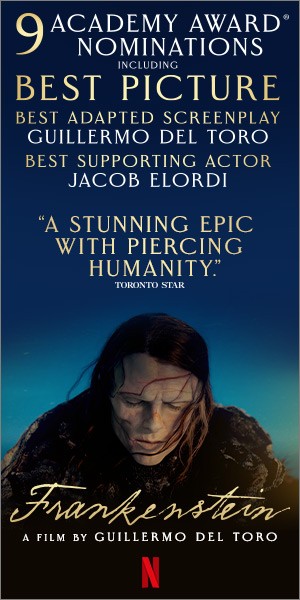The "director's team" got the spotlight on March 27 in the DGA Boardroom as the AD/UPM/TC Mentor Committee presented the seminar, "Meet the ADs and UPMs of the 2003 DGA Award-winning & Nominated Projects." UPM Dwight Williams moderated a panel discussion that included UPMs Robert Del Valle (Six Feet Under), Jan Foster (Angels in America), Dylan Massin (The West Wing) and Tim Moore (Mystic River); 1st ADs Alan B. Curtiss (Master and Commander) and Julian Wall (Errol Morris commercials), and 2nd AD Basil Grillo (Seabiscuit).
UPM and Mentor Committee Chair Randy Turrow in opening remarks, explained that the Forum's primary goal was to elevate the level of awareness and recognition given the ADs and UPMs who make up the director's team. Moderator Dwight Willams further added, "We don't handle cameras, lights, equipment. We handle people. We design, we establish, we execute productions. We're the human infrastructure of productions, the connecting links, the communication channels, the motivators," which generated a lot of agreement among panel members on such topics as budgeting, hiring, management style, dealing with unethical or illegal issues and first priorities when they are hired on a project.
"I think you should look at how much time you have to put the project together and your economic and creative parameters: what is the scope of the show, what are the resources that you've been given to do it and what are the expectations?" Del Valle said. "With HBO on Six Feet, we're lucky enough to be given the resources to deliver the quality show they want. We knew going in that the show could not be done in seven or eight days. We're on a nine-day schedule. With a creative show coming from Alan Ball, you knew you were dealing with a high-quality show, so it's then our job not to mess it up, to try to deliver what they're trying to achieve.
"The odds of doing all [episodes] in nine days are pretty slim so we have an allowance of an additional half-day per episode built into our budget. We also allocate funds for what-ifs: heavy visual effects or, in our instance, heavy makeup effects. Going into the season we're prepared for a lot of contingencies."
Like Del Valle on Six Feet, Jan Foster found HBO to be supportive of the needs of the Angels in America production. "As a production manager you push questions through that people don't want to assign money to," she said. "You really want to give the director what he wants and you have to be a little bit fearless in approaching it that way. You ask questions to get enough money to realize his vision. You shouldn't minimize things, but don't over pad either."
Tim Moore, UPM on Clint Eastwood's Mystic River, agreed, and said, "One of the things that you have to learn as a UPM is that though we are in charge of the production, there are times when you can have a stronger hand and other times when you're going to have to sit back and be the motivator or cheerleader. Clint and his team are like a machine. I was the new kid on the block; a lot of the things I had done in the past I really didn't have to do on this project because they had already been set up. Usually, I will roll my sleeves up and get in there. You don't do that with Clint. His 1st AD is also his producer, Robert Lorenz, and Clint works in a manner like Peter Weir has with Alan [Curtiss]; they are very close. On this project, [I made] sure I knew the crew because everybody had been there for a long time. So it was learning the politics, dealing with the people and making sure it went smoothly.
"As far as the set, the toughest part of the job was making sure that we were a couple days ahead. We had a 43-day shooting schedule that we shot in 39 days. Out of the 39 days, eight days we wrapped at lunch. We worked two days over 10 hours. [Clint] is prepared and he knows what he wants and doesn't waste time. That's an ideal situation for a production manager. On other projects it's not quite like that."
"I really like to stay in close touch with the production manager," said Master and Commander 1st AD and executive producer Alan Curtiss. "Sharing knowledge is the way to go. Whatever I know in terms of what the director wants, I will always give the production manager that information. It is called the 'director's team' and I think there's a reason for that."
"Sound communication has to be the bedrock of what you do. It is important to have a strong relationship with the production manager, the producers, studio, the director," 1st AD Julian Wall said. "The moment there's a breakdown, where you've got the director and the producer who simply don't see to eye-to-eye, you do fall in the middle and it is very difficult. My job first and foremost is to help the director get what he wants. But I have obligations to the others, and that's where the conflict comes in. Where you might appear to side with the director, you have to at least maintain a sense that you understand the producer's predicament. What I've done is almost tie my 2nd AD to the producer. He's got the producer's ear, there is this communication and you're not seen to be jumping out of one camp and into another.
"Communication is just a simple word but it carries with it a bigger definition. It's not just about I told them this or I sent a memo here or we talked about it. People talk about things, but what was resolved in that discussion? Was there a decision made about how to progress forward? Communication is not about telling somebody something. It's about following up on it and also making sure that they have inferred what you have implied."
Basil Grillo says that a 2nd AD is generally the last to look at an issue. "I'm the one doing the call sheet trying to figure it out," he says. Grillo believes it's his job to press the 1st AD for answers, to solve the problem before it becomes a problem. "If I don't know what's going on, it's going to impact my ability to do my job. Hopefully I have a relationship with 1st ADs where I can do that and not have them be like, 'what is he talking about?' or 'is he overstepping his bounds?' "
In hiring 2nd ADs, Curtiss likes to work with "people that are calm under fire," he says. "I'm not a drill sergeant. I'm not a yeller and screamer. I like to maintain a certain calm on the set. I think the actors appreciate it. The directors I work with also like it. What has happened in the last 10 years with my 2nds has been an in-house growth situation where currently my key 2nd is somebody who I've done 10 films with but he started off as a set PA and then over the years moved up. Probably five of my former key 2nds are now out 1st AD-ing and production managing, so it's been a normal cycle of experience and knowledge; as they've gone up the ladder, other people have come to the fore. So much of what we do is word of mouth."
The West Wing's UPM Dylan Massin first looks for someone he's worked with before "that I know will work well with me," he says. "If none of my guys are available, I start asking around, 'who would you recommend?' "
Del Valle looks for "flexibility" in ADs, he says, while Foster seeks a certain sensibility. "I've really appreciated when ADs are involved, when they're able to talk freely to the director [about] their opinions on things," Foster said. "[Some ADs say] 'Who am I to throw my idea at them?' but it's very important that you do that. There's always an appropriate time."
There are also times on a project when an AD or UPM has to prevent or confront unethical or illegal actions. "I'd love to just say it's a black-and-white issue, there's right and there's wrong, but that's not the case," Wall said. "Some wrongs are bigger wrongs than others. We go through life trying to make decisions about right and wrong. In production, it often comes up in safety issues, when you're rushed to do this and that and you know there's something you can't do because it's a safety issue. But in making that decision you're actually going to stop a big shot from happening — and I think you have to.
"There will be times when you're called upon to make a decision and, by the way, that is why you're there. That's why you spend years gaining all that experience, because you're going to have to decide 'sorry, I don't think it's smart; I don't think it's wise.' If you turn and look around you, you'll probably find most people nodding and saying, 'he's right, we shouldn't try this now. We haven't taken proper precautions.' I think the director at the end of the day feels somewhat more comfortable, at least somebody's watching out for him, 'at least somebody's got my back.' "
